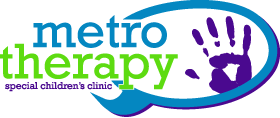How Pediatric Therapy Can Improve a Family's Quality of Life
Some children require extra support to succeed in life. Many parents don't realize that pediatric therapy can address the problems their child is facing. Instead, they try to handle these problems on their own. But when you don't know what’s causing your child to act a certain way or why they struggle with something you think is "easy," it can lead to frustration and impatience. You spend so much time coping and changing your whole family's life around to handle the problem that you don't have the energy for your other responsibilities. This is no way for your family to live, and you don't have to continue to live this way. Pediatric therapy can help your child overcome their barriers and give you tools that you can use at home to facilitate their development. We can work together to improve the quality of life for your whole family.
What is Pediatric Therapy?
Pediatric therapy is designed to help children with developmental, physical, or emotional difficulties. Therapists use specialized techniques to help children overcome their barriers and reach their full potential. The specific types of pediatric therapy address different areas of development:
Physical therapy develops motor control, balance, coordination, and other skills children need to perform everyday tasks.
Occupational therapy improves fine motor skills and sensory processing needed for activities of daily living, playing with others and engaging with their environment.
Feeding therapy teaches them to chew and swallow safely. It also addresses situations like picky eating or sensory issues that prevent children from having a varied and nutritious diet.
Speech therapy improves their articulation. And teaches them how to make the correct sounds for speaking. It can also help with stuttering, voice volume, clarity of speech, and other common barriers.
Language therapy improves their ability to communicate ideas to others and to understand what others are communicating. It can also help improve their literacy, vocabulary, and social skills.
Common Problems Pediatric Therapy Addresses
When a child has difficulties like developmental delays, sensory processing issues, poor communication, or restricted mobility, it significantly impacts what they can do in their daily life. These challenges can affect children in a multitude of ways:
Mobility struggles impact their ability to easily play with other children, participate in sports, or enjoy fun activities around town.
Developmental delays lead to struggling in school, both academically and socially.
Sensory processing differences may cause refusal to eat at restaurants, fear of new experiences, and difficulty with hygiene routines.
Speech and language differences make it hard to make friends, communicate to others what they need or want, or express their feelings appropriately.
Pediatric Therapy Helps Parents as Much as Children
Most parents of children with these difficulties are focused on that one child’s wellbeing. They want to ensure their child has everything they need to grow and thrive in spite of their barriers. This often means accommodating that child’s specific needs and limitations. Unfortunately, this can lead to unintentional neglecting the needs and desires of other family members. It's easier to stick to the meals and activities that won’t cause problems for the child who needs the most help; but restricting what your family is allowed to do to keep one child happy quickly breeds upset from other family members.
This problem is compounded when one day, there is no more of that one meal the child will eat, or a family emergency means parents must vary the schedule that child is used to following. When these deviations happen, as they are bound to do, the child hasn’t learned healthy coping mechanisms to handle it. Their whole world is turned upside down by the change, and it can lead to a meltdown. With pediatric therapy, you can accommodate your child’s unique needs while also supporting and encouraging them to gain the skills to overcome the barriers.
Pediatric Therapy Can Make Your Home Peaceful Again
Our therapists teach children valuable skills that increase their self-esteem and willingness to take on new challenges. This newfound sense of independence benefits the child and the whole family:
Independent children require less help from their parents, giving you more time to handle other responsibilities
Pediatric therapy can teach your child how to effectively communicate their feelings and ideas, which cuts down on tantrums and interfering behaviors
As your child gains new skills, they will be able and willing to try new things that you couldn’t do with them before
When your child is more confident and able to handle daily activities, you’ll have more time and energy to devote to their siblings or other family members
When an emergency happens, your child will be better equipped to handle their reactions to sudden changes or new situations without becoming overwhelmed
Schedule Your Free Pediatric Therapy Screening
Even though pediatric therapy is intended for the child who needs help, its benefits extend far beyond their individual growth to positively impact the whole family. Call us at (763) 450-9400 to schedule your free pediatric therapy screening today, and we’ll work together to create a more peaceful home environment and improve your family’s overall quality of life.

